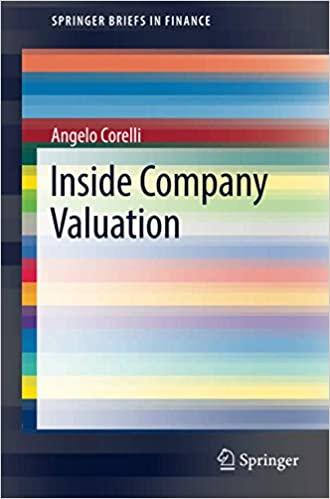Question
(a) Provide and explain a numerical example of the annualised cost of capital for a cash discount using both simple and compound interest. (6 Marks)
(a) Provide and explain a numerical example of the annualised cost of capital for a cash discount using both simple and compound interest.
(6 Marks)
Casdon Plc has recently had a problem with late payment of debts despite invoicing its customers for payment within 8 days. The last years aged accounts receivable profile is provided:
| Average Collection Period (days) | % of Total Accounts Receivable Receipts (by value) |
| 8 | 14 |
| 13 | 17 |
| 22 | 29 |
| 30 | 21 |
| 36 | 15 |
| 40 | 4 |
Accounts Receivable receipts for the last year were 137m. Priority is to be given to the reduction of the companys working capital requirements through the achievement of a better Accounts Receivable collection performance.
Weighted average cost of capital (WACC) is 14.7%.
They are considering an offer of a 0.4% discount to customers who comply with the current invoicing terms which would have the following effect:
| Existing Payment Period | % of Accounts Receivable Attracted by Discount |
| 13 days | 81 |
| 22 days | 76 |
| 30 days | 69 |
(These percentage figures all refer to value).
Required:
(b) Explain the ways in which Casdon could set a good credit policy.
(5 Marks)
(c) Calculate Casdons overall average accounts receivable collection period, the resulting working capital requirement and the cost of this to the company explaining the results at each stage.
(6 Marks)
(d) Determine and explain the likely financial effect on Casdon of the discount and which of the two options described appears to be more cost effective.
Step by Step Solution
There are 3 Steps involved in it
Step: 1

Get Instant Access to Expert-Tailored Solutions
See step-by-step solutions with expert insights and AI powered tools for academic success
Step: 2

Step: 3

Ace Your Homework with AI
Get the answers you need in no time with our AI-driven, step-by-step assistance
Get Started


